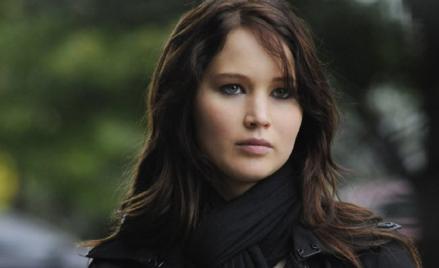Ugh, Keith, you’re so right about how Oscar season comes along every year and squashes all movie conversations in progress, like that giant animated foot that used to come down and stomp out sketches in progress on Monty Python’s Flying Circus. Judgments of a given film’s value get inextricably tangled up with estimations of its likelihood of winning; our love for one movie or performance becomes tainted by resentment for that other, annoying one that’s getting all the attention instead.
Much as I enjoyed David O. Russell’s Silver Linings Playbook when it came out, I couldn’t help but lift an eyebrow yesterday when it up and became the first movie in 31 years (since Warren Beatty’s Reds) to get nominated for an Oscar in every acting category—not to mention Best Adapted Screenplay, Best Director, and Best Picture. If by some dark miracle of Harvey Weinstein necromancy Silver Linings turns out to be this year’s The Artist—a slight, imperfect, but amusing picture that inexplicably elbows its way past worthier competitors to the Oscar finish line—then yeah, that’ll be irritating. This ungainly comedy is not only not the best picture of the year, it’s not even Russell’s best work. (I still prefer his early, manic, overstuffed farces: Flirting with Disaster, I Heart Huckabees.) But especially after a second viewing (undertaken to test whether I’d unfairly prejudged Bradley Cooper’s performance the first time around, which I think I did), I’m fine with Silver Linings elbowing its way onto so many awards slates. More romantic comedies should be this loose-limbed, this idiosyncratic, and this flat-out funny and sexy and sweet. Sure, Russell’s script is uneven and a little shapeless. The movie seems to sit up halfway through, realize “Oh crap, I need a climactic resolution,” and then race to provide a rushed, overly tidy one. But much of what comes first is so marvelously untidy that you forgive it a lot. Russell’s moviemaking practice has something in common with the rough wisdom espoused by Jennifer Lawrence’s character when accused by Bradley Cooper’s of being a “big slut”: “There’s always going to be a part of me that’s sloppy and dirty, but I like that.”
Silver Linings Playbook is stuffed to bursting with small pleasures. There is Lawrence’s movie-star-making turn as the proudly dysfunctional village bicycle Tiffany, Robert De Niro’s most committed performance in a decade, and all the lovingly established details and rhythms of everyday life in a working-class Philadelphia neighborhood. It’s a very rhythmic film all around, at times recalling Robert Altman in its easy, loping pace and dense overlapping dialogue. And I admire the care Russell invests in the specificity of even the smallest characters: Julia Stiles as Jennifer Lawrence’s tightly wound sister, Paul Herman as Robert De Niro’s omnipresent gambling partner, Chris Tucker as Bradley Cooper’s obsessive-compulsive buddy from the “loony bin” (the script’s term, not mine). Love it or not, you leave that movie having visited a world.
The same is true of Benh Zeitlin’s Beasts of the Southern Wild, 2012’s Sundance Cinderella, that has floated through the year as if coated in pixie dust. I don’t mean to be sarcastic toward this beautiful, earnest, intermittently affecting film—it’s a hard movie to entirely hate, especially when you see phone footage of 9-year-old Quvenzhané Wallis dancing at the Critics’ Choice after-party in a pink dress. Stephanie and Wesley compare Beasts to a graduate thesis on poverty; to me it was more like a kindergarten ceramics project, lovingly made and offered, but nonetheless lumpy and inexpertly glazed. I think Benh Zeitlin seems like a filmmaker of enormous promise, and I’m glad his movie’s success will give other weird, uncategorizable-by-genre projects like it a chance to get made and seen. But that doesn’t mean his movie isn’t a sodden, unfocused mess.
I feel like I’ve gone through the year having conversations where someone who loved Beasts makes the case for it, I make the case against, and both of us walk away having utterly failed to connect. Precisely what they like about the movie must be what I don’t, I guess: the unswervingly high emotional pitch of the story; the ever-present swelling chords of the pretty folkie score (co-composed and performed by Zeitlin); and that horrible, relentless voiceover. I loved Wallis both as a physical presence onscreen (in those rubber boots and orange undies, how could you not?) and in her scenes with other actors, but I think she was done a disservice by being forced to read aloud reams of florid prose that seemed to be originating from anywhere but her 6-year-old character’s brain. By the movie’s end, I was ready to send the writers’ teeth “flying around the sky in a million little pieces,” or whatever that line is.
When I first saw the trailer for Beasts—that shot with the little girl running through a slow-motion shower of sparks while the music plays in the background—I thought, wow, this looks sensational. Little did I know that the music would never let up, or that that image would appear not at the movie’s emotional climax but somewhere in the first 10 or 15 minutes, or that the whole film would essentially be a string of just such decontextualized bursts of feeling with no dramatic downtime for getting to know the characters or their world. By the second hour I started to feel as if I were watching a tearjerking television commercial for … what? Poverty? Authenticity? Crawfish boils?
Keith, for this last round (already??), I won’t even throw you a particular title to riff on. I’ll just set you loose in the newly stocked storage room of 2012 movies. Which ones do you want to pick up, dust off, and turn over again, just for the feel of them in your hands?
Dana
